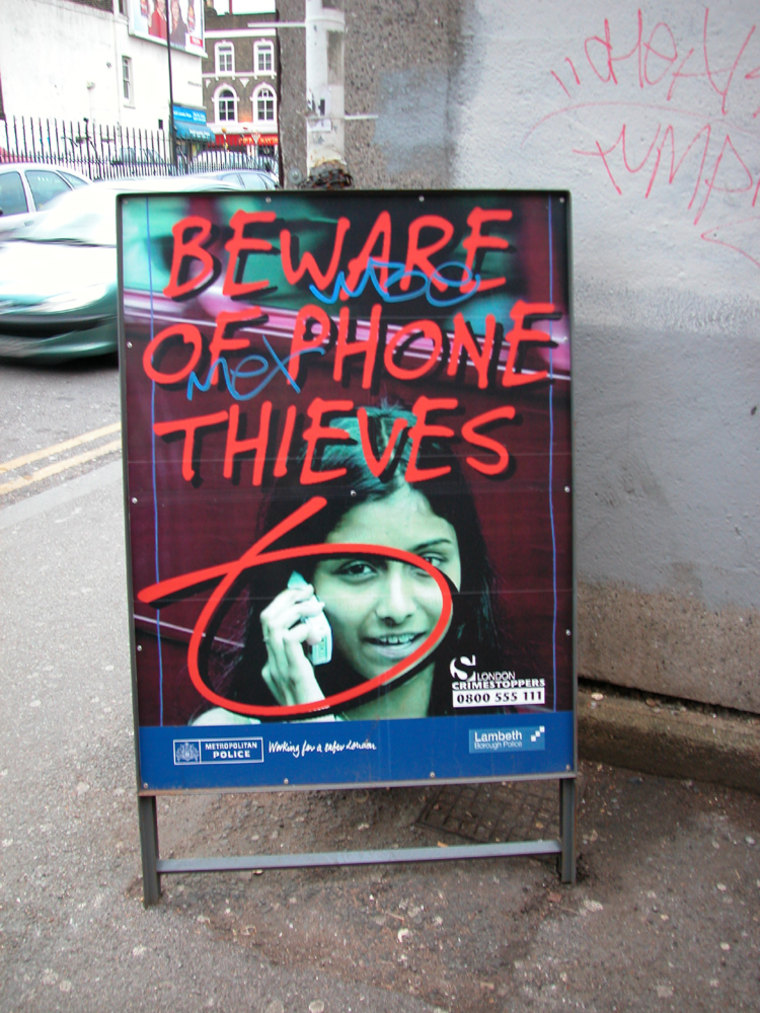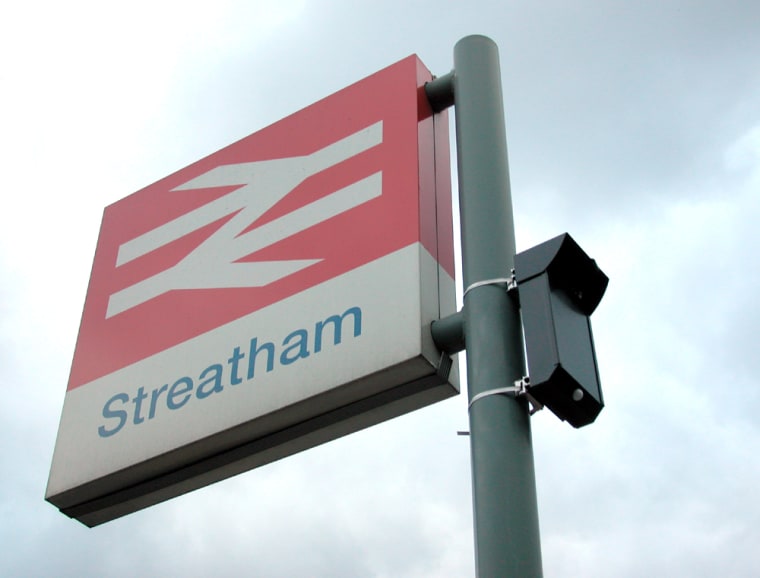London police have mounted “talking” signs on lampposts to warn dwellers of the British capital’s most dangerous borough of muggers waiting to prey on them.
“Police warning: Keep your mobile phones safe — robbers operate in this area,” a man's voice says as commuters step out of a south London railway station.
Heads turn, but the voice is difficult to locate: It emanates from a birdhouse-sized black box located 15 feet up a signpost.
In addition to cautionary posters, the “talking" signs were installed this month at 10 locations in the districts of Streatham and Norwood, as part of “Operation Safer Streets 5,” a crime prevention plan for the borough of Lambeth.
“We’ve had a look of bemusement from people, and one or two people have been quite startled by it, but that’s precisely the reaction I’m looking for,” said Police Constable David Skinner, a crime prevention officer.
“Especially late at night, people come out of the railway station or come off the bus, and the first thing they do is phone home and say ‘I’ll be home in 10 minutes,’ and then they get followed down the side streets by the street robbers,” he said adding that once a person is targeted for their cell phone, they will often have “readily exposed items and cash” stolen from them as well.
Lambeth has the unenviable reputation as London's most dangerous borough. In January alone, police reported 363 instances of street crimes, although that was down from a high of 544 for the same month three years ago.
“It’s very dangerous in this area,” said a Streatham railway station worker who asked not to be identified. Speaking from behind protective glass, she said, “I’ve seen (cell phones) stolen right here in front of the ticket window.”
‘Talking sign’ advertisement
Skinner said the police force was “floating around a few ideas to use a loudspeaker, perhaps have one of our officers drive around with one” when he saw “talking signs” advertised in a technology innovations brochure.

Realizing the device’s potential, Skinner showed the brochure to his managers, who agreed that the signs could provide a less labor-intensive way of informing the public of the dangers associated with using cell phones.
Working in partnership with the local council, the police force bought 10 of the £258 ($477) signs to put in “crime hotspot areas” around railway and bus stations.
Triggered by motion sensors, the battery-operated signs are on a two-minute delay to prevent them from chattering into an overload.
The “talking signs” from Stock Displays Limited in Doncaster, Yorkshire, came programmed with eight different crime prevention messages, and new warnings can be recorded on them should a surge in another type of crime occur.
“I’m hoping that if they’re successful it’ll be rolled out to a wider area,” Skinner said.
The Streatham railway station worker said that commuters appeared to listen to the “talking sign" situated just outside the station’s entrance.
“You can hear it, so you would take notice, but I can’t tell if it’ll make a difference,” she said.
Despite Lambeth's high crime rate, the police force proudly notes that crime in the borough has been cut by 47 percent in the last two years.
“Even by New York standards that’s quite impressive,” Skinner said.
Tossing around ideas for other ways the "talking signs" could be put to use, "like to warn the blind about flooding," he said, “See — we’re always thinking of new innovations.”
